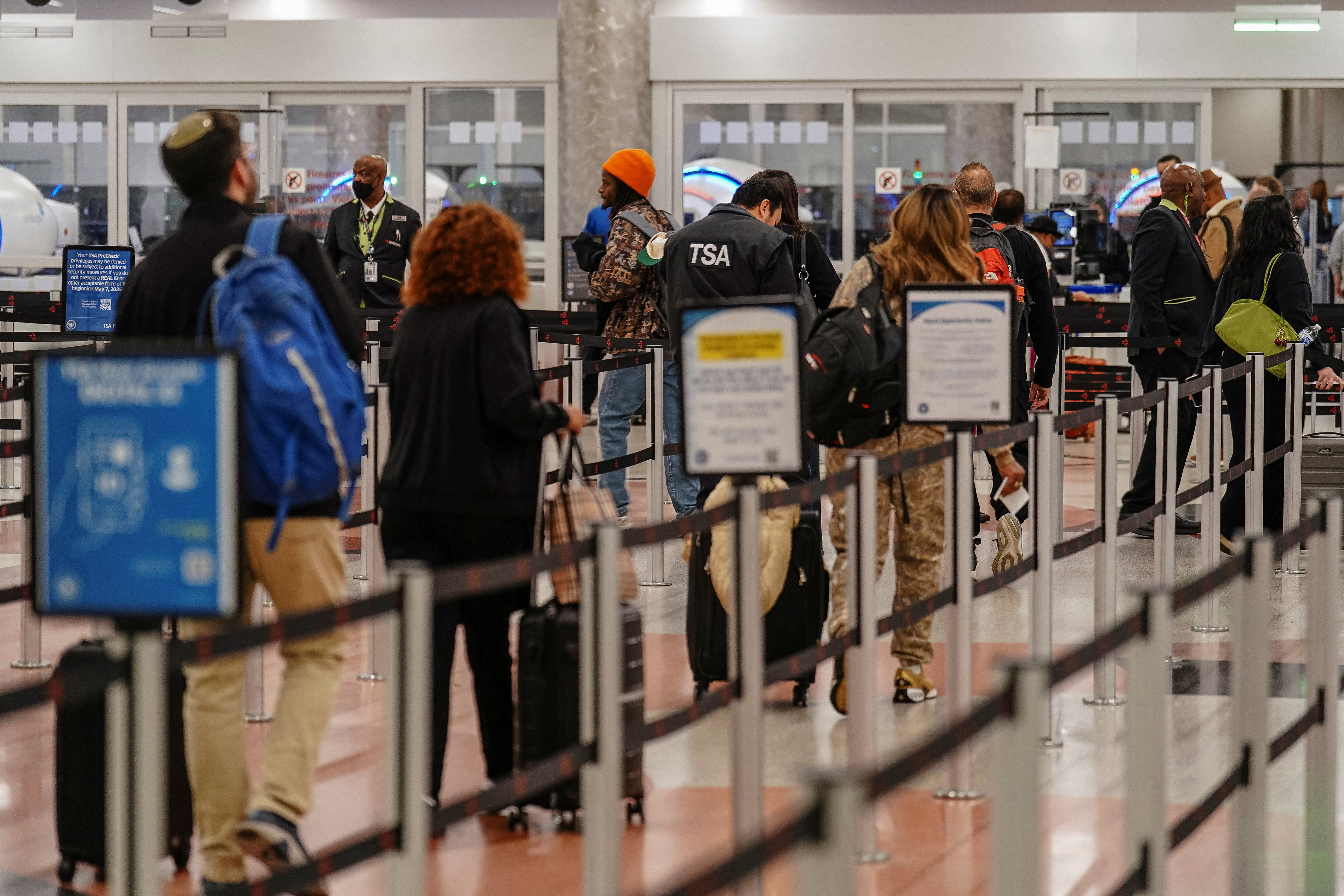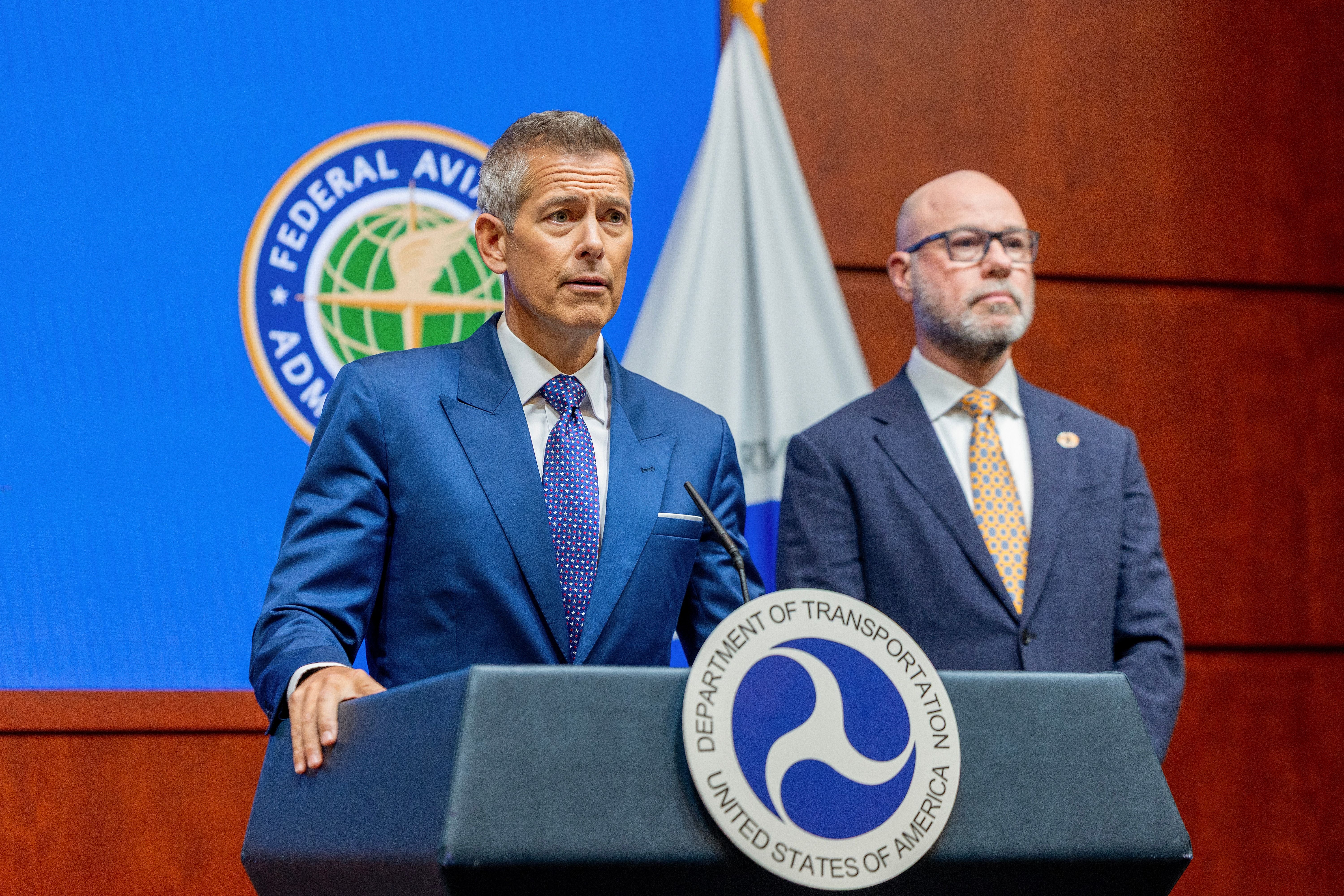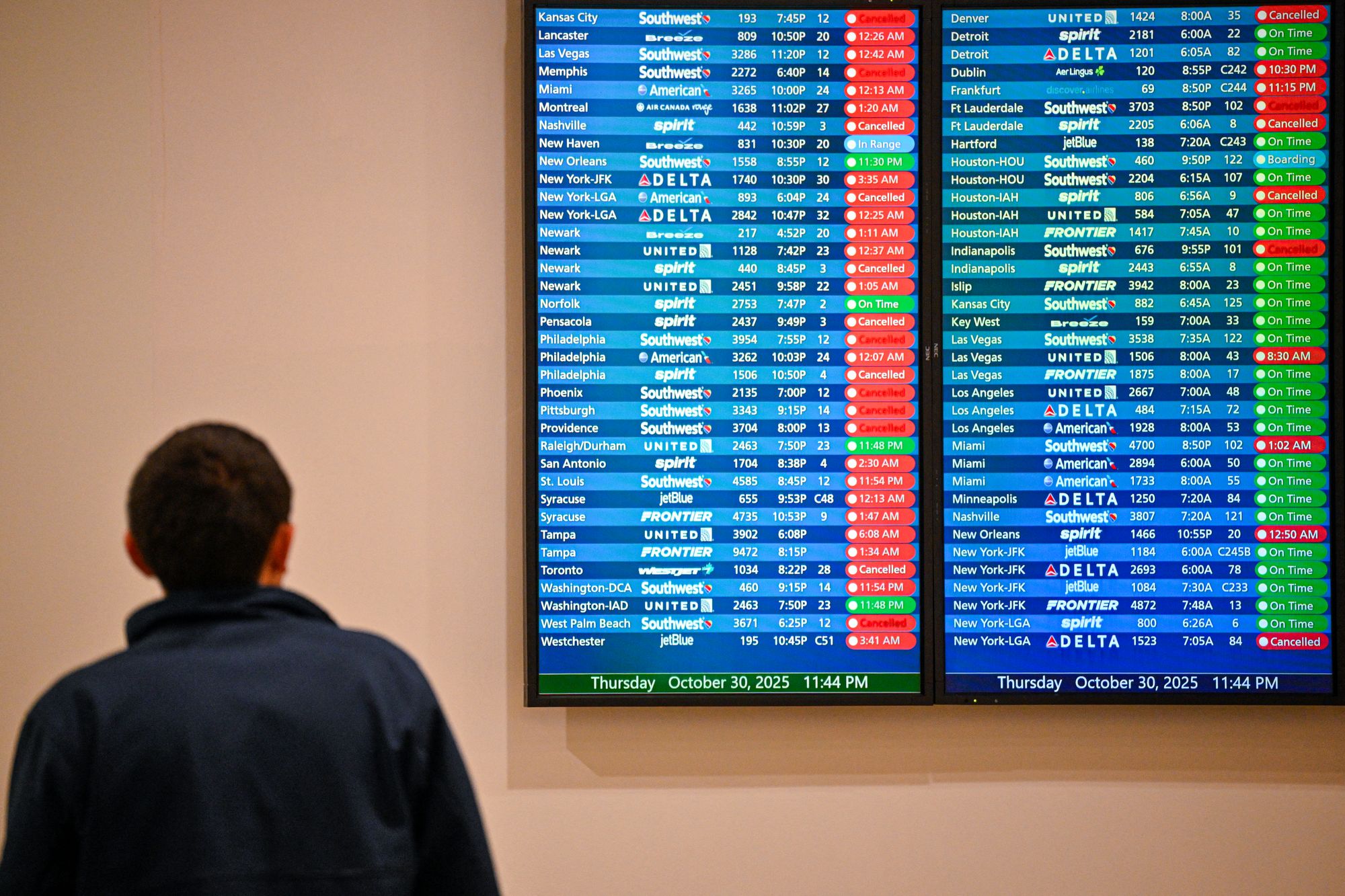Major delays and widespread cancellations could soon be the norm at airports across the United States as the Federal Aviation Administration plans to cut air traffic by 10 percent this week due to staffing shortages amid the longest government shutdown in history.
Travel hubs in Chicago, Los Angeles, and New York are among 40 airports that will be affected by the flight reductions as soon as Friday, just weeks before some of the busiest holiday travel days of the year, administration officials said.
The shutdown has imposed “immense strain and fatigue” on air traffic controllers, who have worked without pay since October 1 when the shutdown began, Transportation Secretary Sean Duffy said. The shutdown has continued for 36 days — the longest on record.
As the shutdown drags on, "I think you’re going to have more significant disruptions in the airspace, and as we come into Thanksgiving, if we are still in the shutdown posture, it’s going to be rough out there, really rough," Duffy told Fox & Friends Thursday.
Even before the flight cancellations went into effect, more than 2,400 flights were delayed and 52 flights were canceled in the U.S. Thursday, according to FlightAware.
Here's what Americans need to know:

The Department of Transportation updated its policy this week when it comes to refunds for canceled or delayed flights. Airlines are required to notify passengers of their right to a refund, the policy states.
Canceled flights
A consumer is entitled to a refund if the airline cancels a flight, “regardless of the reason, and the consumer chooses not to travel,” the rules state.
Delayed flights
A consumer is entitled to a refund if the airline “significantly delays” a flight and the consumer chooses not to travel, according to the Department of Transportation.
Airlines define “significant delay” as flights with a schedule change or delay of at least three hours domestically, or at least six hours internationally.
In these circumstances, a passenger may be entitled to compensation for “certain expenses and/or amenities if the delay was due to something in the airline’s control and causes a long enough inconvenience during travel,” the policy says.
However, if the passenger chose to “take a significantly delayed/changed flight or an alternative flight offered by the airline,” then they are not entitled to a refund under the new rules.

Other ‘significant changes’
When it comes to connecting flights, consumers may also be entitled to refunds in some circumstances that are considered "significant changes,” by the Department of Transportation.
Still, refunds only apply if the airline “significantly changes” a flight and the consumer chooses not to travel.
If the passenger is scheduled to depart from a different origin airport or arrive at a different destination airport, they are entitled to a refund.
A consumer is also entitled to money back if they are scheduled to travel on an itinerary with more connection points than on the original itinerary.
Passengers may also be eligible for refunds if they were “involuntarily downgraded” to a lower class of service. If this happens to a consumer, and they choose not to travel because of that, then they qualify for money back.
However, if the downgrade happens, and the passenger chooses to carry on with the flight, the consumer is not entitled to a refund of the full airfare, but the airline is required to refund the difference between the original fare and the downgraded fare.
There are also policies in place specifically for individuals with disabilities. If a passenger with a disability is scheduled to travel on “substitute aircraft” on which accessibility features are unavailable, they are entitled to a refund, the rules state.

Checked luggage
If a checked bag has been declared “lost” by the airline, the passenger qualifies for money back. What’s declared “lost” luggage depends on the airline.
United Airlines says customers are entitled to reimbursement if they haven’t received their bags after more than five days of their arrival, while Delta offers reimbursement after 21 days.
Passengers can also be refunded if their checked luggage is “significantly delayed.” For domestic flights, that means the bag has not been delivered within 12 hours after the flight arrived.
For international flights less than 12 hours long, if the bag hasn’t been delivered within 15 hours after arriving, customers qualify for refunds; for international flights longer than 12 hours, luggage must be delivered within 30 hours of arrival, the same applies.







